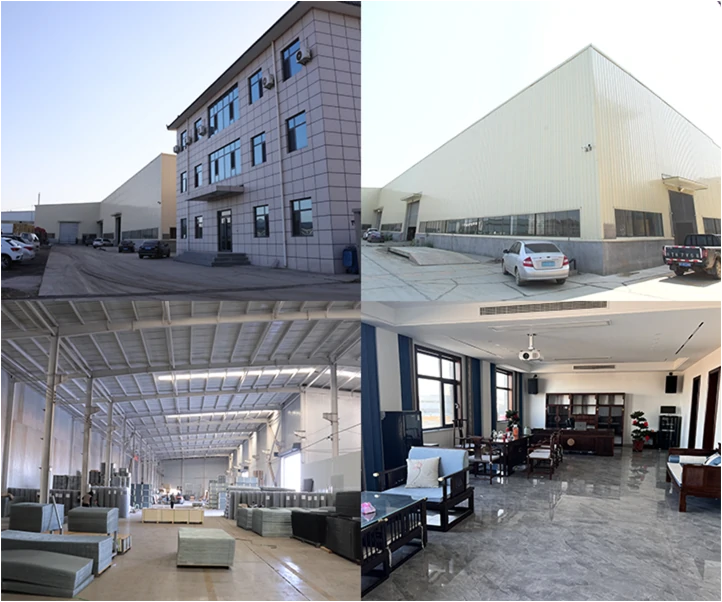Affordable Options for Fence Wire Mesh Pricing and Quality Comparison
Understanding Fence Wire Mesh Prices Factors and Trends
When it comes to securing properties, agricultural land, or even enhancing aesthetic appeal, fence wire mesh is an essential material that serves various purposes. However, potential buyers often face the question What determines the price of fence wire mesh? Familiarizing oneself with the factors that influence these prices can aid in making informed purchasing decisions.
1. Material Composition
The primary factor affecting the price of fence wire mesh is its material. Common materials include galvanized steel, stainless steel, and PVC-coated wire. Galvanized steel is popular due to its resistance to rust and corrosion, making it suitable for outdoor applications. While it's often the least expensive option, prices can vary based on the thickness of the wire and the quality of the galvanization.
Stainless steel, though more expensive, offers superior durability and aesthetic qualities, making it ideal for areas where appearance matters. PVC-coated wire mesh tends to have higher initial costs due to the additional coating process but offers an attractive finish and increased lifespan due to better resistance against environmental factors.
2. Wire Gauge and Mesh Size
Another critical factor in determining the price of fence wire mesh is the wire gauge and the size of the mesh openings. Wire gauge refers to the thickness of the wire used, with lower gauge numbers indicating thicker wire. Thicker wire is generally more robust and durable, which can lead to higher prices.
Mesh size, or the distance between the wires, also plays a crucial role. Smaller mesh openings are typically more expensive due to the increased amount of material used in their production. The intended use of the fence often dictates the mesh size; for instance, smaller openings are suitable for containing smaller animals or preventing the passage of debris, lending to a higher cost.
3. Length and Height of the Roll
The dimensions of the wire mesh rolls also contribute to the pricing structure. Standard roll lengths typically range from 50 to 100 feet, while heights can vary from 3 to 10 feet or more. Longer and taller rolls, which provide the option for greater coverage, naturally come with higher prices. Buyers must consider their specific fencing needs to determine the appropriate size and quantity of wire mesh; bulk purchases may offer cost savings.
fence wire mesh price

The production process utilized in creating the fence wire mesh can also influence prices. Mesh made with advanced manufacturing techniques—such as welded wire or woven wire—may be priced higher due to the increased labor and machinery costs involved. Welded wire mesh, for example, tends to be more robust and stable compared to woven alternatives, reflecting the price difference.
5. Market Demand and Economic Conditions
Like any commodity, the price of fence wire mesh is influenced by market demand and economic conditions. During periods of high construction or agricultural activity, demand for fencing materials can spike, leading to increased prices. Conversely, in a sluggish economy, prices may decrease due to lower demand. Fluctuations in raw material costs, such as steel, also play a significant role in the overall pricing of wire mesh.
6. Regional Variations
Geographics can affect pricing, with costs varying by region due to transportation expenses, local competition, and availability of resources. In areas where wire mesh is manufactured locally, prices may be lower than in regions that rely on imports. Additionally, consideration of local regulations regarding fencing standards may influence the available products and their prices.
7. Additional Features and Accessories
Certain wire mesh products come with additional features or accessories that can affect pricing. These include features like coatings for enhanced durability, integrated barbed wire for added security, or specialized models designed to meet specific agricultural needs. It is important for buyers to weigh these additional features against their budget and requirements.
Conclusion
Investing in fence wire mesh is crucial for any property owner, but understanding the array of factors influencing its price is essential for making a sound purchase. From material composition to manufacturing processes and market conditions, each element plays a vital role in determining the overall cost. Whether for agricultural, industrial, or residential purposes, understanding these variables will help buyers make informed choices that suit their needs and budgets.
-
Space-Saving Chain Fence Hacks Vertical Gardening with Cyclone MeshNewsJul.16,2025
-
Innovations in Iron Nail Wire Production for Modern ConstructionNewsJul.16,2025
-
Creative Uses of Wire Netting Fence in Modern Landscape DesignNewsJul.16,2025
-
Barbed Wire Fence Innovations in Anti-Climb TechnologyNewsJul.16,2025
-
Architectural Uses of Umbrella Nails for Aesthetic Roof DesignsNewsJul.16,2025
-
Architectural Uses of Razor Barbed Wire in Secure Urban DesignNewsJul.16,2025




